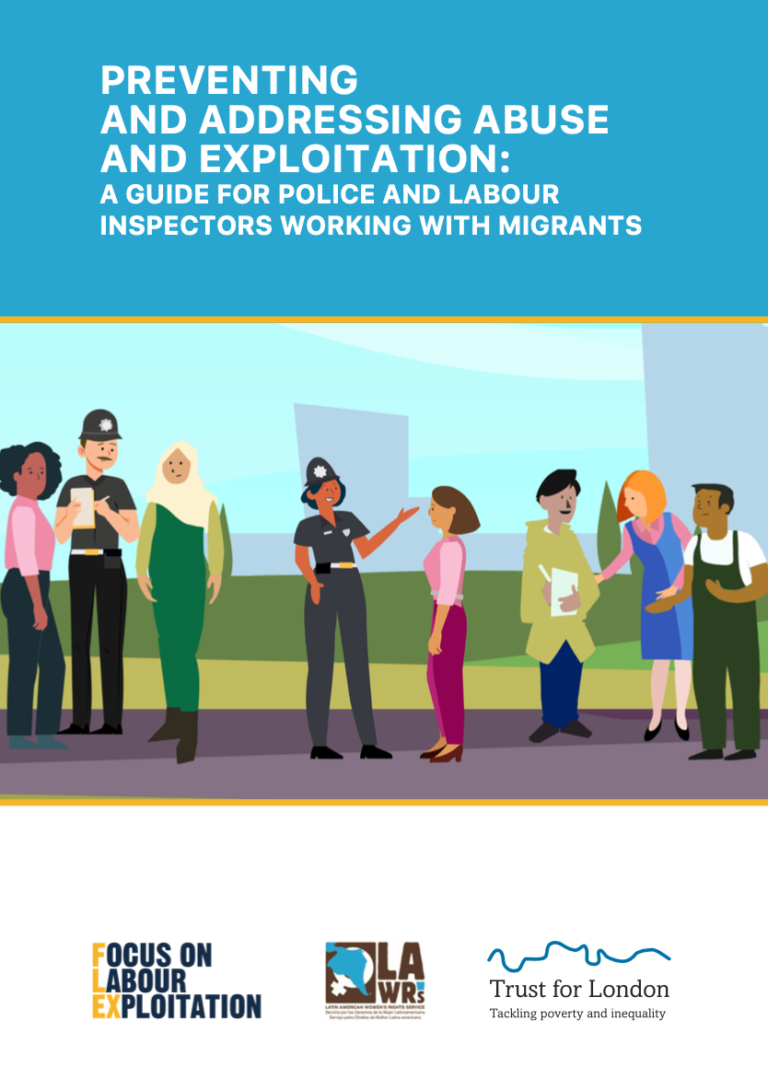Migrants with insecure immigration status often feel unable to report cases of abuse and exploitation for fear that government authorities will prioritise their immigration status over the harm they have experienced and that they will face serious personal consequences as a result. This makes migrants more vulnerable to abuse and exploitation, as abusers capitalise on this fear to act with impunity because they are unlikely to be held accountable for these violations.
As a result, relevant authorities are unable to prevent and address serious crime, like forced labour, servitude and domestic abuse, since they cannot access valuable intelligence needed to identify and prosecute abusers and exploiters. This situation results in migrants being denied safety and justice, and offenders going unpunished and remaining free to abuse others, creating a significant threat to public safety.
This guide looks into the police and labour inspectors’ practice of sharing migrants’ personal information with the Home Office for immigration enforcement purposes. It describes how this is affecting migrants, especially victims of domestic abuse and labour exploitation, and making them vulnerable to harm. It also analyses how this reporting is carried out in practice in the UK. Finally, it outlines practical strategies to increase trust between these agencies and migrant communities. Building on international good practice, these strategies aim at enabling migrants to securely reporti abuse and exploitation and allow agencies to access valuable intelligence to prevent and address these crimes.

